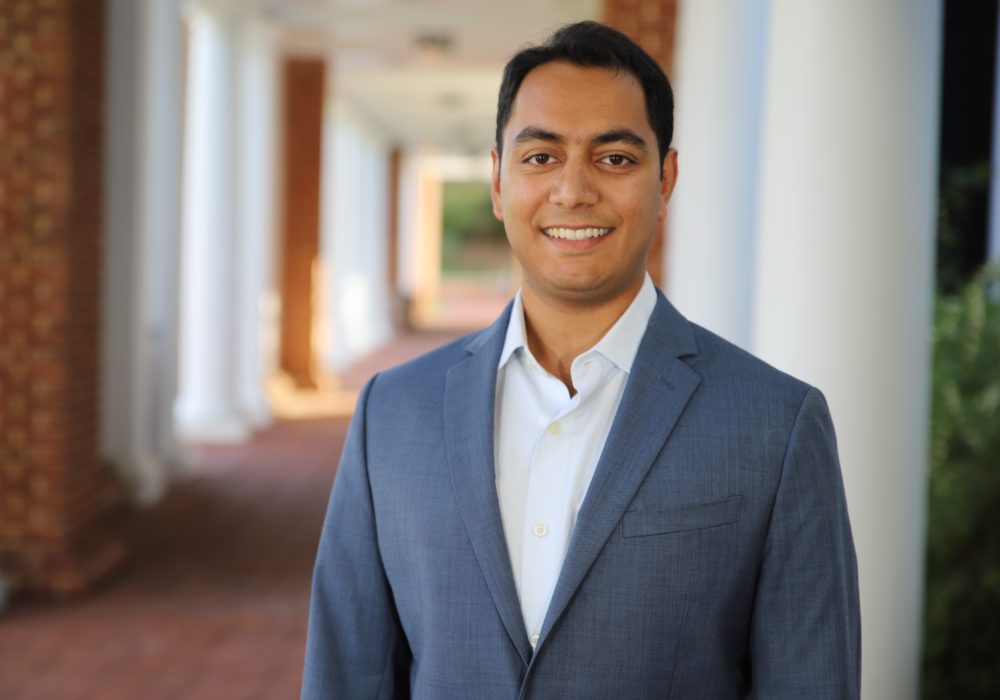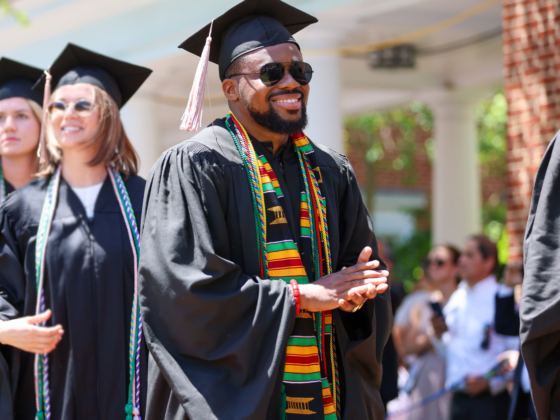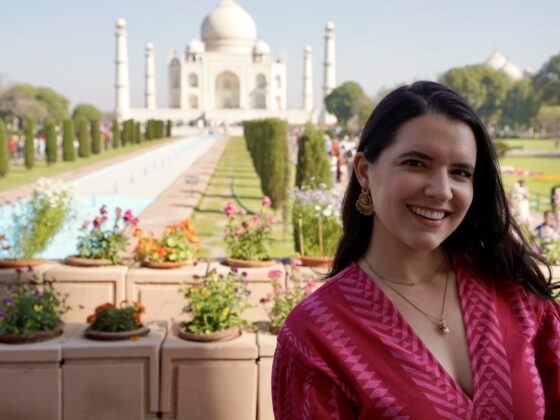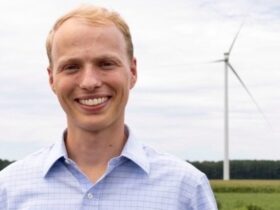Aamir Imam (Class of 2019) grew up in Roanoke, Virginia and studied Applied Math – Biology at Brown University. After graduating from Brown, Aamir worked for New Generation Power, a clean energy company that built, owned, and operated solar, hydro, wind and biomass projects around the world. Aamir worked his way up to Senior Project Manager before deciding to apply to business school to gain a deeper understanding of business theory and principles.
Aamir shares more about his Darden experience in his own words:
Why did you decide to pursue an MBA at Darden?
In undergrad, I enjoyed being able to explore new classes and majors without many limitations since Brown has a unique open curriculum in which there is no general core. But, for grad school, I knew I needed to fine tune what I wanted to study and Darden’s emphases on general management and entrepreneurship were exactly what I needed. Darden was my top choice of schools because these concentrations directly related to my career background and trajectory. After I worked for New Generation Power, I worked for my family’s company, First Medicine, as the Director of Operations. My father is one of the pioneers of teleradiology and, as such, there were many challenges our company faced as an entrepreneurial venture in this field.
Additionally, I enjoyed the diversity of clubs that Darden offered. I joined the Middle Eastern and Islamic Student Association (MEISA) in my first year at Darden and now serve as president of MEISA this year. I am also involved in the Entrepreneurship and Venture Capital (EVC) club at Darden, which helped me a lot last semester as I worked on growing and managing First Medicine with my dad.
Which Darden Worldwide Courses have you participated in, and what attracted you to them?
I participated in a DWC to Sweden in my first year at Darden and in the inaugural DWC to Dubai, UAE and Bahrain this past January. The Sweden course, which focused on entrepreneurship, innovation and sustainability, inspired me to try new and different things. To me, Sweden was foreign, which is probably different than how many people in the U.S. view Europe. Growing up in the United States in a Muslim family originally from Pakistan and India, I did not have the opportunity to travel to the Nordic region and wanted to learn about their culture and frameworks. I was immediately attracted to the Dubai & Bahrain DWC because of the growing significance of the region globally. Additionally, I wanted to better understand how business is run through their particular cultural and religious lenses. I was curious to see how Islam impacts business in that region, and particularly in Dubai which is a rapidly globalized city with a mix of religions.
What was one key lesson you took away from the Dubai & Bahrain DWC?
Before this global immersion course, I thought about the various preconceived notions of what many people born in the U.S. consider ‘right’ or ‘wrong’. There are many frameworks from which people can view the world that are not necessarily right or wrong – they are simply different. I continually reflected on this mindset throughout the course as I saw this ‘different’ framework play out, as well as the huge potential for growth of this region and what that means for the future.
One of the biggest takeaways I have from this course is realizing the difference in mindsets based on culture. In the Middle East life revolves around family, whereas here in the U.S. we operate from an individualist framework. Other frameworks are neither right nor wrong, but these different frameworks exist simultaneously and form different social norms and customs. Participating in this course was a nice reminder that we are not the only group of people operating in the world – the world is much larger than Darden, the East Coast, and the U.S. I returned from the trip encouraged that I don’t need to be so U.S.-centric and motivated that the world is what you make of it.
As an example of this lesson, during the course we had a group dinner with contacts we met from a company visit earlier that day. One of the company’s employees asked a group of us whether we researched Bahraini news before traveling to the country. None of us had. Yet, practically everyone in Bahrain (and the Middle East, more broadly) knows what is going on in U.S. news almost all of the time. Just because we are from the U.S. does not mean that news from rest of the world is irrelevant. You will definitely be a better global leader, wherever you end up in the world, once you understand this. Experiences like this are important reminders of the world’s broader humanity.
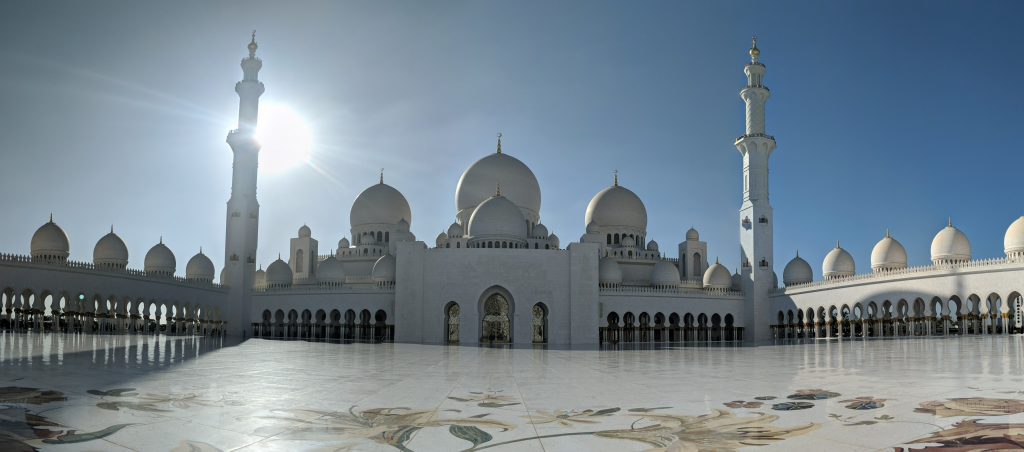
What were some of your favorite memories or moments from the course?
Some of my favorite experiences during the course include making new friends and visiting the cultural sites in both countries. The course allowed us to get to know one another organically – I ended up eating dinner with different classmates almost every night. On top of that, all the food was halal which was great for me!
I enjoyed the Manama Souq in Bahrain. The souq is a bazaar located right in the capital of Bahrain, with its entrance at the Bab al Bahrain, which translates to the Gateway of Bahrain. It contains streets and streets of vendors who were ready to sell anything from gold to spices. I appreciated the amount and acceptance of diversity in the area. There was this tremendous mix of people from Bahrain and expats coming together to buy and sell goods. Beyond that, this area housed a Hindu temple, Islamic mosque, Jewish synagogue and a Christian church all in the same area.
I really appreciated the outings to the mosques in both countries. The Sheikh Zayed Grand Mosque in Abu Dhabi was mesmerizing. I had the chance to join afternoon prayer during our tour of the mosque, and it was an incredibly powerful experience to pray with people from all over the world. The mosque in Bahrain was special for a different reason. Our guide at the Grand Mosque in Bahrain taught our group the foundations of Islam in a way that removed preconceived, political notions. Many classmates asked me really thoughtful questions afterwards about Islamic beliefs and its similarities to Christianity and other religions. A lot of people don’t understand or appreciate the nuances of the religion, and this guide presented the basics of Islam in a way that anyone could easily understand and relate to.
How will this course impact your remaining months at Darden? Your life after Darden?
As the president of MEISA, I was inspired by this course to solidify plans for more events before the year is over. We previously brainstormed an idea to put on an event around the theme of Islamic finance, but the DWC and its emphasis on Islamic finance made our idea more tangible. We will now host a speaker session on Islamic finance in March. MEISA recently hosted a panel event of Darden students with prior work and life experience in Islamic countries, aimed at answering students’ questions about what it’s like to live in the Islamic world and how culture influences work and life. The event drew over 60 attendees! We never had the right medium to talk about these things until now, and I doubt we would’ve had this attendance if the event took place earlier in the year before the DWC.
Personally, going on this course solidified my desire to one day work in the region. I always thought that it would be something I could do if the opportunity arose, but now I plan to seek out opportunities for me to live or work in the region. Other classmates shared the same sentiment after taking this course – several people said the idea of doing a project or working in the Middle East is now on their radar. I appreciate how the course opened my classmates’ eyes and how willing they were to ask me questions about Islamic culture, expectations and the religious spectrum in practice. The Arabian Gulf region was an interesting ‘middle ground’ for many of us: Dubai, for example, is so developed that it is familiar, but the culture is so different that people felt out of place. It was really nice to experience being in the majority culture, and I hope to return to the region for some time after I graduate.
What advice would you give to future students who are considering their options for global courses at Darden?
This may seem counterintuitive, but if you are hesitant to go somewhere, going there is one of the best things you can do. You will be challenged, learn more than you expected and leave with a changed perspective. I appreciate that Darden offered a global course to the Middle East for precisely this reason.

